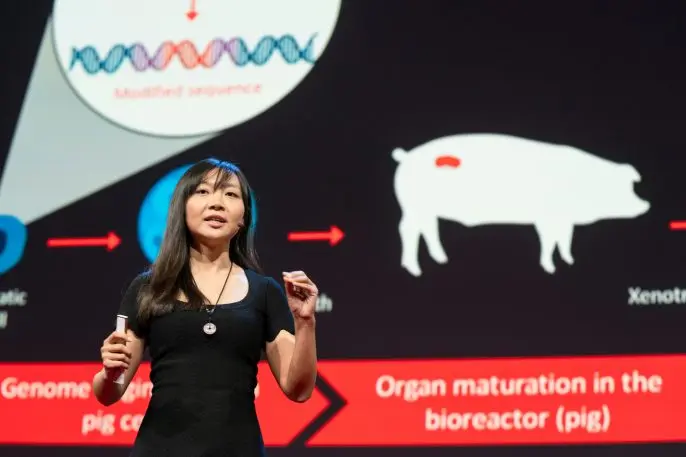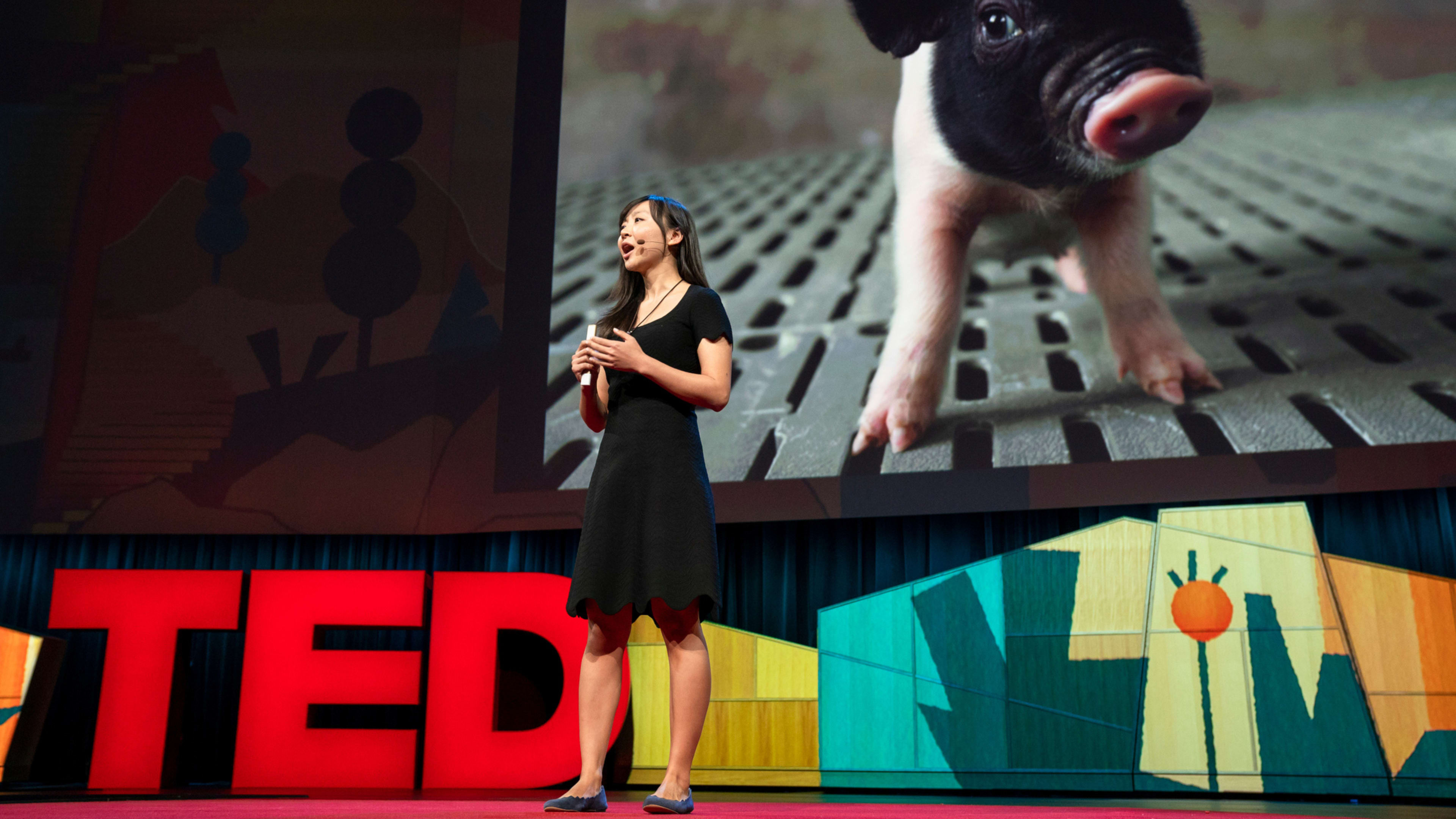In the U.S., around 115,000 people are in need of organ transplants. Because there are not enough organs available for transplant–and because it’s often difficult to find a match for people, even if they make it to the front of the queue–many of the people on that list will struggle to get their medical needs addressed.
But Luhan Yang, chief scientific officer at eGenesis, is optimistic that her team has found a way around this quandary. Using the gene-editing technology CRISPR, it’s possible, she tells the audience at TED 2018 in Vancouver, to create individualized organs for transplant not from human materials, but from pig organs.
Scientists and doctors have long wanted to figure out a way to use the organs of pigs–which share a surprising number of genetic characteristics with humans–in transplants. But there have always been two main issues. “First, there’s a problem of rejection,” Yang says. When a human body recognizes an implant as foreign, it will reject it. And pig cells, also, carry porcine endogenous retroviruses (known by the unfortunate acronym of PERVs), that translate into infections in human bodies.

“Without an effective way to address these issues, the field of xenotransplantation [using non-human organs in transplants] has been blocked until now,” Yang says.
What’s opened it up as a possibility now is CRISPR. The gene-editing tool is able to slice through genes and edit sequences to remove some characteristics and alter others. In 2013, Yang and her team first used CRISPR to make changes to a human cell, and a few years later, they were able to use CRISPR to remove all 62 copies of PERVs from the pig genome. And last year, her team oversaw the birth of the first pig born without the viruses–whose descendants and others like her may eventually be able to donate their organs for human transplant. (Yang reminds the audience that just as humans are able to give, say, a single kidney for transplant, so too will the pigs–and raising pigs for transplants will not necessarily require them to die.)
“We are striving to create a world without organ shortage,” Yang says. While she’s reluctant to give an exact timeline for when CRISPR-edited pig organs will be ready for use in human transplants, and when they’ll scale to the extent that they can tackle that 115,000 waiting list (even after there are a lot of regulatory hurdles to cross), “We finally have the tool to tackle the problem that we never had before,” Yang says.
Recognize your brand’s excellence by applying to this year’s Brands That Matter Awards before the early-rate deadline, May 3.
